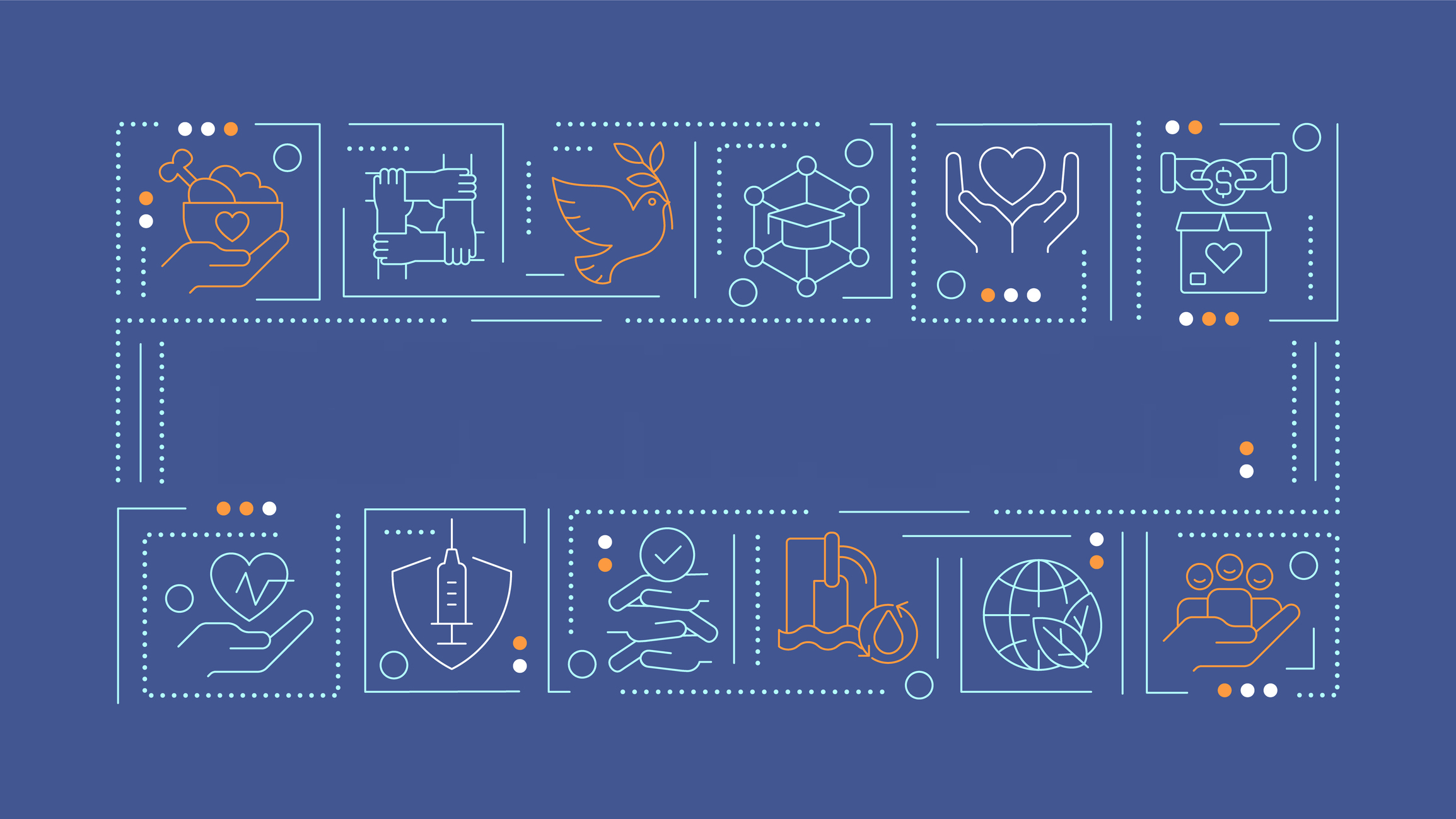The one-size-fits-all approach to website design is quickly becoming obsolete. Website personalization is no longer a luxury but a necessity for businesses aiming to stand out in a crowded online marketplace. By tailoring the user experience to meet individual preferences and behaviours, businesses can significantly enhance user engagement and satisfaction.
AI technologies enable websites to analyze vast amounts of data in real-time, predicting user preferences and delivering content that resonates with each visitor. This level of personalization not only improves the user experience but also dramatically boosts conversion rates. Websites equipped with AI capabilities can dynamically adjust content, recommendations, and offers, making each interaction feel uniquely tailored to the user.
AI and Its Capabilities in Web Personalization
Artificial Intelligence (AI) in web development refers to the simulation of human intelligence processes by machines, particularly computer systems. These processes include learning (the acquisition of information and rules for using the information), reasoning (using rules to reach approximate or definite conclusions), and self-correction. In web development, AI is employed to create dynamic and responsive environments that adapt to the needs and preferences of users without human intervention.
AI Technologies in Website Personalization
-
Machine Learning (ML)
Machine learning algorithms analyze user data such as browsing history, time spent on pages, and click patterns to predict future behaviour. This allows websites to offer personalized content and suggestions tailored to each user's interests and behaviours. For instance, ecommerce sites utilize ML to recommend products uniquely suited to a shopper’s taste, based on their past interactions. -
Natural Language Processing (NLP)
NLP enables a computer to understand human language as it is spoken or written. In web personalization, NLP can be used to improve search functionalities, help chatbots interpret and respond to customer queries, and enable voice search. These applications enhance the user's ability to interact with the website in a more natural and intuitive way. -
Predictive Analytics
This involves extracting information from existing data sets in order to predict future outcomes and trends. For websites, predictive analytics can forecast what content or products a user might search for next, leading to proactive personalization of the user's web experience. -
Dynamic Content Display
AI can also manage the display of content dynamically based on user interaction. It assesses the user's engagement levels with different types of content and adjusts what is displayed accordingly. This ensures that the most relevant and engaging material is always front and center, increasing the likelihood of a conversion.
Data Collection and Analysis
AI-driven platforms are adept at gathering vast amounts of data from various sources, including web interactions, social media behaviour, and even connected devices. This data is then analyzed to discern patterns and preferences, which inform the personalization algorithms.
Making data-driven decisions is important in modern web design as it ensures that the website not only meets the aesthetic and functional needs of users but also aligns closely with their behaviour and expectations. By utilizing data effectively, businesses can create more relevant and engaging experiences that drive user satisfaction and loyalty.
Real-Time Personalization Techniques
Real-time personalization techniques enabled by AI include adaptive content displays, personalized browsing paths, and customized product recommendations. AI can instantly adjust the content and interface of a website in response to user interactions, providing a seamless and highly personalized experience.
Case Studies or Examples of Successful AI Implementations:
-
E-commerce Recommendations: Amazon’s recommendation system uses AI to personalize product suggestions based on browsing history, purchase history, and items frequently bought together, significantly increasing upsell and cross-sell opportunities.
-
Content Customization: Netflix uses AI to personalize movie and TV show recommendations. Their system analyzes viewing habits and preferences to present the most relevant content to each user, enhancing user engagement and satisfaction.
These examples highlight the effectiveness of AI in transforming standard web functionalities into dynamic, personalized experiences that cater directly to the needs and preferences of the user, ultimately driving higher engagement and conversion rates.
Benefits of AI-Driven Website Personalization
The adoption of AI in website personalization has significantly shifted how businesses engage with their audience online. By leveraging AI technologies, websites can deliver highly customized experiences that not only captivate users but also drive measurable improvements in business outcomes.
Personalization, when powered by AI, transforms a generic web interaction into a highly engaging and relevant experience for users. By analyzing user data and behaviour, AI personalizes content, product offerings, and user interactions in real-time. This level of personalization has shown to increase user engagement as content is more aligned with individual interests and needs.
Websites utilizing AI for personalization typically exhibit higher engagement rates, lower bounce rates, and increased session durations compared to those without. For instance, a website with AI personalization can adapt its display and content offerings based on user behaviour from previous visits, making the user feel understood and valued, which encourages longer and more frequent visits.
In contrast, websites without personalization may fail to engage users effectively, leading to higher bounce rates and fewer interactions.
Enhanced User Experience
AI personalization extends beyond simple product recommendations; it encompasses the entire user journey, adjusting in real time to create a seamless flow that guides each user through a bespoke digital experience.
From customized navigation paths to personalized content and interactive elements, AI ensures that every touchpoint is optimized for engagement. This level of customization makes the user feel uniquely catered to, enhancing overall satisfaction and loyalty.
Increased Conversion Rates
Statistical analyses consistently reveal that personalized websites achieve higher conversion rates than non-personalized sites. For example, studies have shown that personalization can increase conversion rates (source), a significant uplift in performance that can translate into substantial revenue growth. Moreover, AI-driven personalization has been noted to increase marketing spend efficiency by reducing wastage on non-targeted or poorly targeted content.
Implementing AI in Your Web Strategy
Integrating Artificial Intelligence (AI) into your website can seem daunting, especially for small businesses that might be new to the concept. However, the process can be streamlined into manageable steps that make AI adoption more accessible and impactful.
Step-by-Step: Integrating AI into Existing Websites
-
Identify Objectives: Clearly define what you hope to achieve with AI. Whether it's improving user engagement, personalizing content, or increasing sales, having specific goals will guide your AI integration strategy.
-
Choose the Right Tools and Platforms: Research and select AI tools that best meet your needs. Consider platforms that offer AI functionalities like chatbots, personalized recommendations, or data analytics. Many CMS platforms now come with integrated AI tools that can be easily activated.
-
Collect and Organize Data: AI needs data to learn and make intelligent decisions. Ensure that your website is equipped to collect useful data from user interactions. Implement tracking tools to gather insights on user behaviour, preferences, and engagement.
-
Implement AI Features: Start with one AI feature that aligns closely with your objectives. This could be as simple as integrating a chatbot to improve customer service or using AI-driven analytics to optimize content delivery.
-
Monitor Performance and Optimize: Once your AI features are up and running, continuously monitor their performance. Use analytics to understand what's working and what's not. Make adjustments based on data to refine AI functionalities and improve outcomes.
-
Scale as Needed: As your business and website grow, consider scaling your AI implementations. Add more sophisticated AI features that can handle increased traffic and more complex user interactions.
Considerations for Small Businesses When Adopting AI
-
Cost: Evaluate the cost of AI tools and platforms. Many AI solutions offer scalable pricing models, so you can start small and increase your investment as your business grows. Look for low-cost or open-source AI tools that can be implemented with minimal expense.
-
Resources: Assess the technical skills available within your team. You might need to invest in training or hire specialists to manage more complex AI integrations. Alternatively, consider partnering with AI service providers who can offer expertise and support.
-
Scalability: Choose AI solutions that can grow with your business. Consider the scalability of the AI tools you implement, ensuring they can handle increased loads and more complex tasks as your business expands.
-
Security and Privacy: Ensure that any AI implementation complies with data protection regulations and is secure against potential cyber threats. This is crucial for maintaining trust and integrity in your digital interactions.
By thoughtfully integrating AI into your web strategy, even small businesses can leverage powerful technologies to enhance user experiences and drive better business outcomes. This approach not only positions your business at the forefront of digital innovation but also directly contributes to improved operational efficiencies and customer satisfaction.
Future Trends in AI and Web Personalization
As AI continues to evolve, its integration into web development is set to transform how businesses interact with their customers online even further. Staying ahead of these trends is essential for businesses aiming to maintain competitive advantage and provide cutting-edge user experiences.
The future of AI in web development points towards even more sophisticated, intuitive, and seamless interactions. We can anticipate AI becoming increasingly adept at understanding and predicting user needs, possibly even before users themselves are aware of them. This will be driven by advancements in AI algorithms and the growing volumes of data available for analysis.
Emerging Technologies and Their Potential Impact
-
Generative AI: This technology goes beyond analysis and prediction to create content on its own, such as written posts, videos, and images tailored to individual preferences. For web development, generative AI could automate the creation of customized content for users, enhancing engagement without human input.
-
Augmented Reality (AR) and AI: Combining AR with AI in web development could enhance user experiences, particularly in fields like online retail and real estate. For example, AI could predict what products a shopper might like and then use AR to show how these items would look in the user's own home.
-
AI in Accessibility: Future AI tools will likely focus more on making the web accessible to all users, including those with disabilities. AI could dynamically adjust websites based on the needs of users with visual or auditory impairments, providing an inclusive and personalized web experience.
-
Emotion AI: Also known as affective computing, this technology can detect user emotions through data inputs like facial expressions, body language, and voice tone. Emotion AI could be used to tailor website interactions in real-time to fit the mood and emotional state of the user, potentially increasing engagement and satisfaction.
-
Ethical AI: As AI's capabilities expand, so do concerns about privacy and ethics. The future will likely bring stricter regulations and standards for ethical AI use, ensuring that technologies are developed and implemented responsibly, with an emphasis on user privacy and consent.
AI for Enhanced Web Personalization
AI's ability to analyze vast datasets and predict user behaviour has opened up new avenues for creating personalized, engaging, and highly effective web experiences.
With the potential of AI to drive significant improvements in both user experience and business outcomes, there is every reason for businesses to consider incorporating AI into their web development strategy. Whether you are looking to enhance user engagement, increase conversions, or simply provide a more personalized experience, AI offers a wealth of opportunities to achieve these goals effectively.




